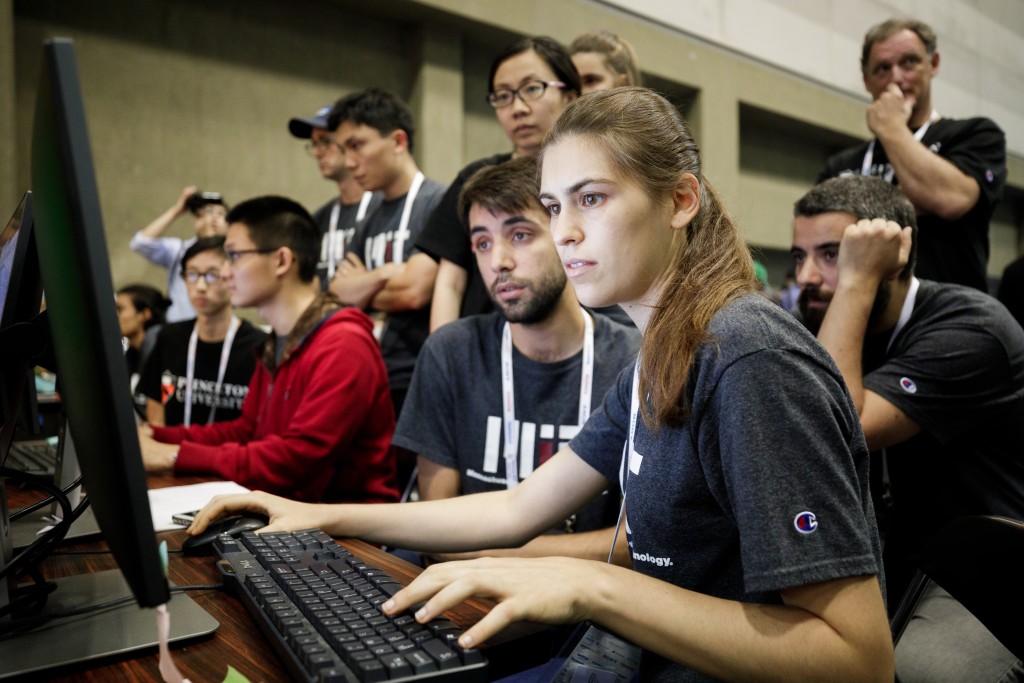Page 274 • (2,859 results in 0.042 seconds)
-

development resources, all signs pointed Larsen to nursing. So, he quit his Fish and Wildlife job in 2006, attended a local community college to complete the necessary prerequisites and applied to the entry-level master’s program through PLU’s School of Nursing. “I was 46 years old. It was a big change for me,” Larsen said. “It involved a lot of risk and a lot of taking chances.” Carol Seavor, interim dean for the School of Nursing, said Larsen’s story isn’t necessarily unique. In fact, it’s a welcome
-
addressed embryonic development and metamorphosis of Bombina orientalis (fire-bellied toad). He kept five or six of the charismatic little amphibians in his research lab until his retirement, hand-feeding them bits of liver. Carlson was known as the department’s developmental biologist, who regularly taught the upper-division course in the subject and routinely participated in the biology core, required by all majors. In 1996 he was awarded a National Science Foundation grant, along with colleagues
-

programs for Windows, the Mac, smart phones, and other devices (does anyone remember programming printers?). I will tell you that it takes a long time for a company to build-up the tools and infrastructure to get engineers excited about a new technology. Not so with Amazon Alexa. The software development tools are readily available now for experimenting with Alexa and making a connection in your favorite programming language. (The top four used now are Java, JavaScript, C#, and Python.) Take a look at
-
federal student aid using the FAFSA, there are a number of scholarships at PLU and beyond to make attending a private college possible. Additionally, faculty, staff, and students have been working to insure that access to course materials is not a barrier to student success through the development of the Lute Library and Course Reserves.PLU Financial AidUndocumented students attending PLU are considered for the university’s academic and artistic achievement scholarships in the same manner as domestic
-
impactful ways. Your partnership makes possible the practices and innovations that we know are most important for student success. As you saw above, scholarships, strong academic programs and a supportive community are still the foundation on which we thrive. With these successes and celebrations, I will continue to repeat that PLU cannot “do it alone.” Not only is this community of care, of which you are a part, already critical to our success, we are also seeing how much more we can achieve when
-
provide students with a structure for critical analysis during these reflections, prompting students to respond to the main questions and relevant sub questions. 49Multiple-Task Mastery ChecklistMultiple-task Mastery Checklist provides a structured format for carrying out a multi-stage formative assessment of a formal project. It involves identifying the sequence of project activities and ensuring that students master each one in the series prior to moving forward to the next one. 50Personal Learning
-
work will be taking place. The faculty mentor receives $1700 for their assistance and mentoring in the project. Faculty participate with the student in establishing research questions, reading all materials, and helping the student define the format and content of the final research project. Faculty mentors do not need to be on campus all summer, but generally available to the student, especially in the critical months of August and September. Payments to student and faculty are typically linked to
-
self-confidence in mathematics, and to sharpen critical thought in mathematics. Topics selected by the instructor. Prerequisite: Eligibility based on PLU Math Placement Exam, or permission of instructor. (4) MATH 115 : College Algebra and Trigonometry - QR A review of algebra emphasizing problem solving skills. The notion of function is introduced via examples from polynomial, rational, trigonometric, logarithmic and exponential functions. We also explore inverse trigonometric functions, identities
-
has published essays about numerous contemporary American poets. A regular essayist for The Georgia Review, his critical articles and reviews have appeared in many journals and collections, among them The Iowa Review, Papers on Language and Literature, The Southern Review, Contemporary Literary Criticism, and Poetry International. He was awarded the Distinguished Teaching Award at Cal Poly in San Luis Obispo, CA, where he taught poetry writing and modern and contemporary American literature. Still
-
strategic plan guiding us – I believe these three concepts are critical to our future. I’d like to share some progress we’ve made thus far on these three priorities and talk about what our efforts to date say about our collective will and the promise of our future. Let’s start with sustainability. In 2007 PLU became a charter signatory of the President’s Climate Commitment, a nationwide consortium of colleges and universities committed to sustainability. At that point, in 2007, we had no metrics or
Do you have any feedback for us? If so, feel free to use our Feedback Form.


